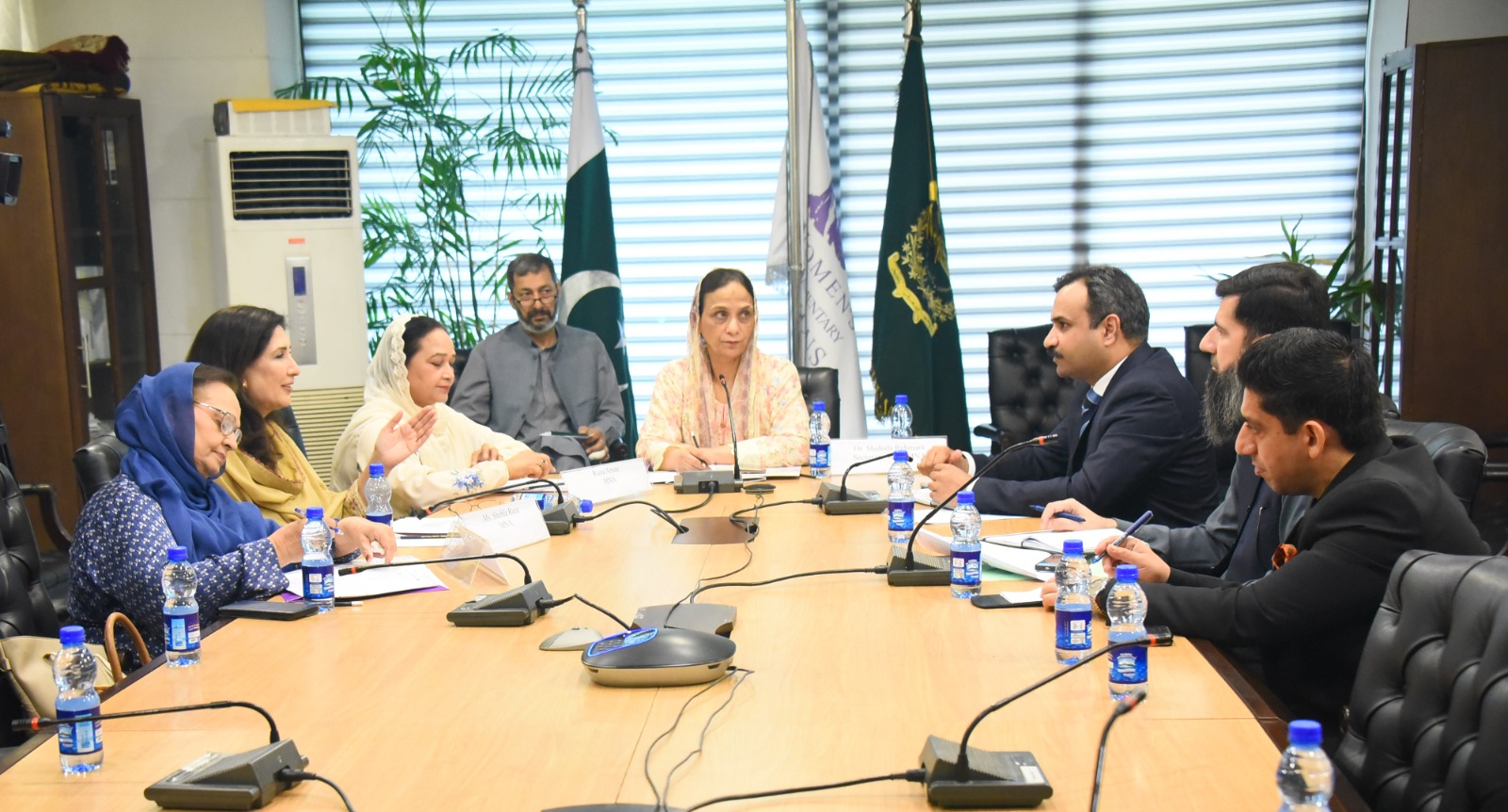Low Representation of women in National Voter Registration
A meeting of the Working Council of the Women’s Parliamentary Caucus (WPC) was convened today at the Parliament House to deliberate upon the low representation of women in the national voter registration database.
A representative from the National Database and Registration Authority (NADRA) briefed the Council on ongoing challenges and progress related to women’s registration. It was informed that while adult registration under NADRA has reached nearly 99%, significant challenges persist in the registration of children. The representative further apprised the Council that NADRA has made the submission of a birth certificate mandatory for the issuance of a Computerized National Identity Card (CNIC).
In a bid to facilitate working women, NADRA has introduced a mobile application titled Pak Identity, enabling remote application processing. It was also highlighted that succession certificates, as per the existing legal framework, are now being issued within 15 days—though provisions exist for same-day issuance under specific circumstances.
Dr. Shahida Rehmani, Secretary WPC, underscored the need for dedicated women-only service counters at all NADRA registration centers across the country to ensure greater accessibility and comfort for female applicants. In response, the NADRA representative informed that Fridays have been designated exclusively for women at NADRA centers to encourage and prioritize female registrations.
The Working Council of the WPC resolved to undertake an official visit to NADRA Headquarters in the coming week to further review the institutional measures being taken to bridge the gender gap in registration and to provide support for enhanced facilitation of women.
The meeting was attended by Ms. Tahira Aurangzeb, Member National Assembly; Syeda Shehla Raza, Member National Assembly; Ms. Rana Ansar, Member National Assembly and Parliamentary Secretary for Water Resources. The honourable members actively participated in the deliberations and put forward key recommendations to enhance women’s access to CNIC registration and address regional disparities in national documentation.





